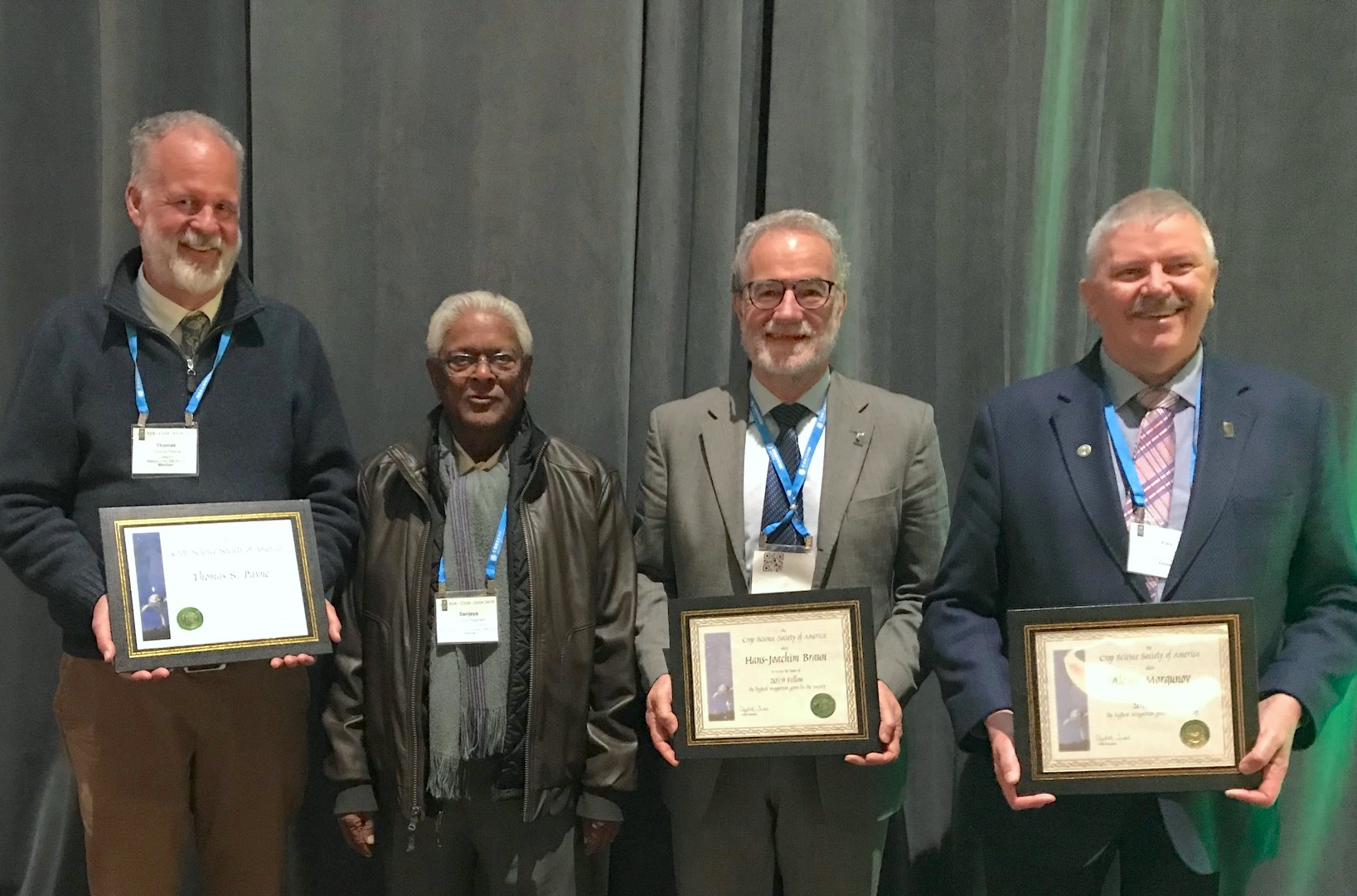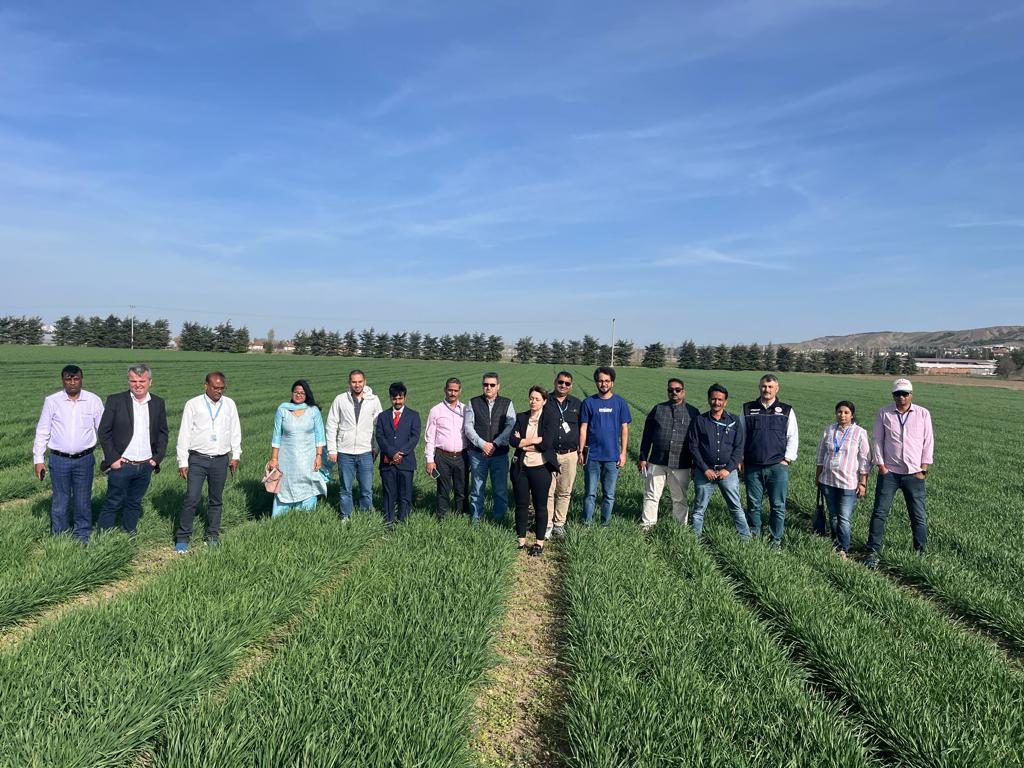 Soil is the foundation of agriculture, and healthy soil is critical to the entire ecosystem. However, soil health is under threat today as many factors make soil unhealthy, leading to significant losses in farming. CIMMYT in India has been addressing these issues in partnership with national and international institutions, while CIMMYT’s SBP program in Türkiye aims to deliver high-yielding wheat germplasm that is resistant to SBP and supports the International Soil-Borne Pathogens Research & Development Center (ISBPRDC) of Türkiye. It also facilitates knowledge exchange and technology transfer to support joint research and development activities to improve soil health.
Soil is the foundation of agriculture, and healthy soil is critical to the entire ecosystem. However, soil health is under threat today as many factors make soil unhealthy, leading to significant losses in farming. CIMMYT in India has been addressing these issues in partnership with national and international institutions, while CIMMYT’s SBP program in Türkiye aims to deliver high-yielding wheat germplasm that is resistant to SBP and supports the International Soil-Borne Pathogens Research & Development Center (ISBPRDC) of Türkiye. It also facilitates knowledge exchange and technology transfer to support joint research and development activities to improve soil health.
On arrival, the group of scientists and professors from Bihar was welcomed by Metin Türker, director general of Agricultural Research and Policies (TAGEM). Talking about the intricate nexus of agriculture, climate, and technology, Türker emphasized varietal developments to irrigation advancements and engaged in lively discussions with the group, fueled by a shared vision for agricultural sustainability.
Led by Abdelfattah A. Dababat, CIMMYT country representative in Türkiye and the leader of the SBD program, the scientists and professors from India ventured into the heart of research institutions, immersing themselves in the latest innovations in wheat improvement and plant pathology. Their journey took them from Ankara to Eskisehir and ended at the Abant Izzet Baysal University, Bolu, where they were greeted by passionate experts eager to share their knowledge. Bonds were forged amid lectures and laboratory demonstrations, and ideas ignited, paving the way for future collaborations.
Visit to Ankara Province
The participants visited the Field Crops Central Research Institute and were introduced to the TAGEM Seed Gene Bank and Herbarium. Participants were acquainted with seed processing and preservation methods with live demonstrations. Following that, participants visited the Plant Protection Central Research Institute in Ankara, where its Director Ayse Ozdem gave an overview of the institute’s mandates and research work. Participants had the opportunity to explore the plant pathology laboratory and learn about major crop diseases in Türkiye and their control measures.
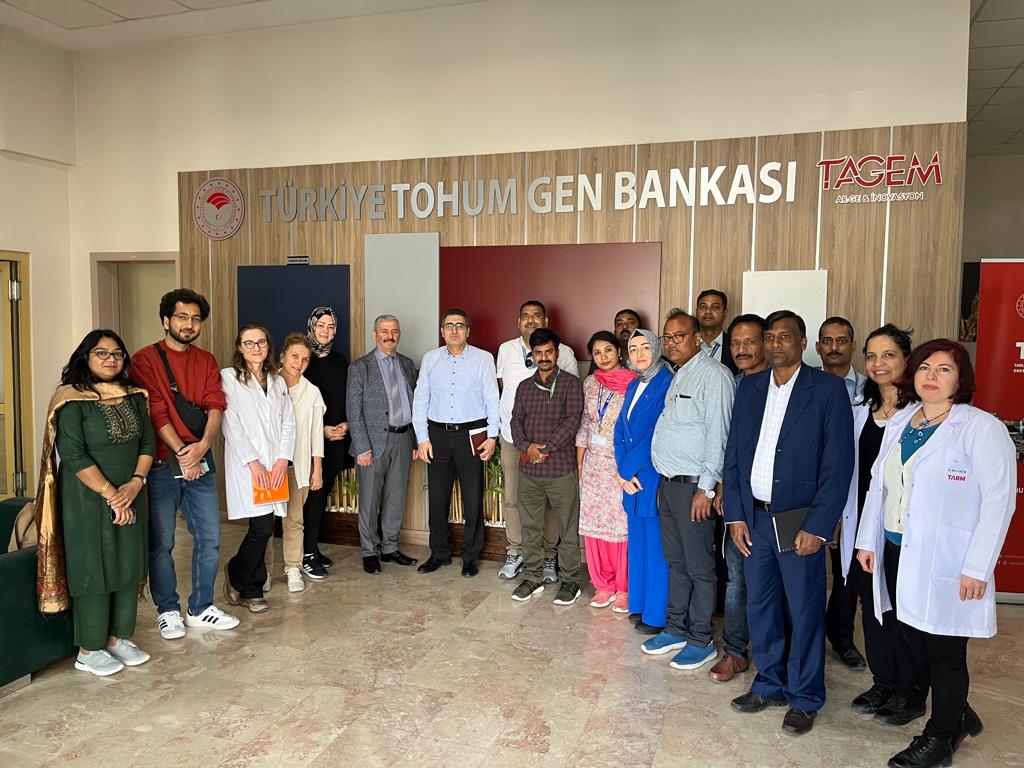 Participants later visited winter wheat trial sites at the research station in Haymana, a district of Ankara province. The group then interacted with Mesut Keser, ICARDA’s wheat breeder who specializes in winter and facultative wheat while working on the International Winter Wheat Improvement Program (IWWIP). This was followed by a visit to the pathology field experiments, a breeder seed production area, and an experimental trial for evaluating Syngenta TYMIRIUM® technology at the research station.
Participants later visited winter wheat trial sites at the research station in Haymana, a district of Ankara province. The group then interacted with Mesut Keser, ICARDA’s wheat breeder who specializes in winter and facultative wheat while working on the International Winter Wheat Improvement Program (IWWIP). This was followed by a visit to the pathology field experiments, a breeder seed production area, and an experimental trial for evaluating Syngenta TYMIRIUM® technology at the research station.
Visit to TZARI in Eskisehir
Scientists also had a chance to visit the Transitional Zone Agricultural Research Institute located in the Central Anatolian Plateau of Türkiye. The institute’s director Sabri Cakir welcomed the participants and briefed them about the ongoing research activities of the institute and its relevance to agriculture in Türkiye. Savas Belen gave a general overview of the institute and the breeding program, while Abdullah Tane Kilinc presented a glimpse of the activities of the Department of Plant Pathology. Professor Halil Toktay gave an overview of plant parasitic nematodes in wheat and potato, followed by Gül Erginbas Orakci who discussed the importance of managing soil-borne pathogens.
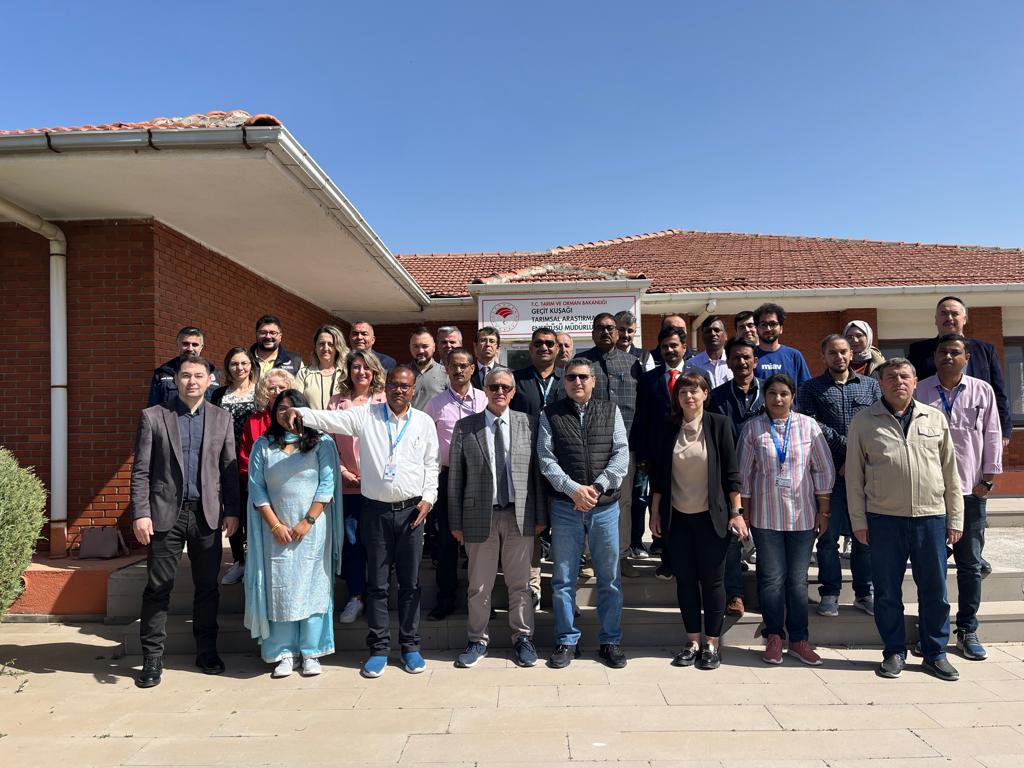 Beyhan Akin, wheat breeder at CIMMYT, gave a presentation on CIMMYT’s breeding activities in Türkiye, and Oğuz Önder presented fertilizer application on the quality of Bread Wheat and the importance of foliar fertilization in crops.
Beyhan Akin, wheat breeder at CIMMYT, gave a presentation on CIMMYT’s breeding activities in Türkiye, and Oğuz Önder presented fertilizer application on the quality of Bread Wheat and the importance of foliar fertilization in crops.
Thereafter, participants visited the plant pathology laboratory where Abdelfattah A. Dababat and Gül Erginbas-Orakci gave an overview of laboratory methods to study Cereal Cyst Nematodes and Root-Lesion Nematodes with live demonstrations. Innovative approaches to tackle the Plant-Parasitic Nematodes in agriculture were also discussed. In the agronomy laboratory, Oğuz Önder gave a live demonstration for estimating plant grain and biomass yield by optical sensor-based technologies. Participants also had the opportunity to explore the soil science laboratory and become familiar with state-of-the-art equipment used for soil nutrient analysis.
Visit to Bolu
The participants visited Abant Izzet Baysal University, in Bolu, where the Rector Professor. Mustafa Alişarlı welcomed them. This was followed by presentations and discussions on burning issues in agriculture. Professor Senol Yildiz gave a presentation on soil health assessment and management. Professor Halil Kütük of the Department of Plant Protection gave a brief overview of the latest research advancement in biological control of major crop diseases. In continuation, Abdelfattah A. Dababat gave an overview of the cereal cyst nematode and their management. The discussion led to a brainstorming session on soil health management, soil-borne diseases, soil microbiome, and the challenges of using microorganisms for soil health improvements. The major challenges and opportunities for agriculture development under changing climate scenarios in India and Türkiye were also discussed.
The training course exposed participants to the latest research and technologies for soil and root health management to increase agricultural productivity and profitability immediately and into the future. During the entire visit, participants working in different fields (soil science, agronomy, plant breeding, and microbiology) interacted with Türkiye’s expert counterparts to discuss their work and share valuable research insights. Several topics and technologies relevant to global agriculture, like zero tillage, climate-resilient agriculture, precision input management, hidden hunger, and digital agriculture, were discussed. Participants also explored future opportunities for bilateral research collaborations between India and Türkiye.
Participants expressed their deepest gratitude to the CIMMYT team at Türkiye, led by Abdelfattah A. Dababat, for arranging an effective training program and for the support provided at every step. “Your careful planning and thoughtful execution have created an environment where learning flourishes and connections are made. Thank you for your invaluable contribution to our learning journey,” said the participants. Participants also expressed their sincere thanks to the Ministry of Agriculture, Türkiye, and the BISA team for coordinating this training and making the entire experience seamless and impactful for all involved. Special thanks were offered to the Government of Bihar for supporting the travel of scientists from India for this training program under the climate-resilient agriculture project in the state.
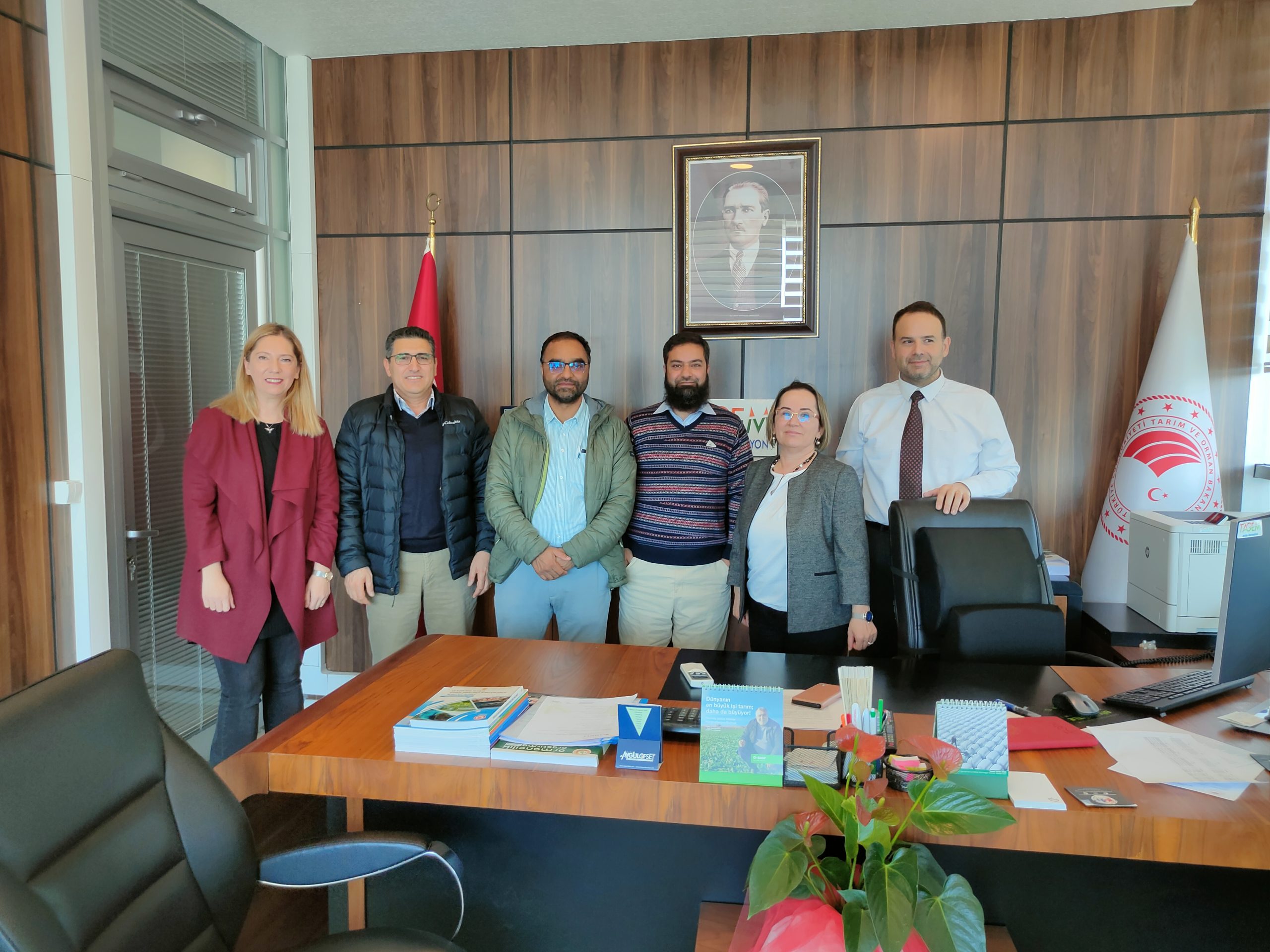
 Capacity development
Capacity development 
